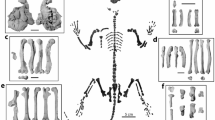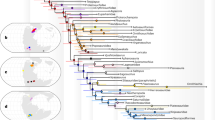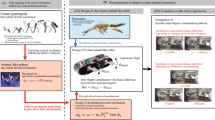Abstract
IN your Notes for October 26, on p. 621, you follow the Editor of the Zoological Record in suggesting that, under the present financial conditions, palæontology should be removed from the volume issued by the Zoological Society, and provided for by the palæontologists themselves. Against such retrogression we desire to protest. “Everyone knows,” as you say, “that an incomplete record is of very little use”; and how absurdly incomplete a record would be that took no account of palæontology! The objectors probably spring mostly from the ranks of systematic zoologists. We will deal with them on their own ground. The systematic position of Limulus has long been a vexed question, which no one can attempt to solve without consulting the work of Malcolm Laurie on the fossil Eurypterids. The classification of the Crinoids has troubled zoologists since the days of Johannes Müller; but neither he nor anyone ever dreamed of settling it without reference to palæontology. Students of recent Bryozoa will not be grateful to those who keep them in ignorance of J. W. Gregory's lately published work on the Bryozoa of the early Tertiary rocks. And so we might go on ad infinitum. Another argument that may affect the systematists is that if they reject all names of fossil genera and species from the record, they will have no means of knowing whether the new names they may wish to propose have been used before or not. It is even possible that some of them may unwittingly describe as new forms already described by some unknown palæontologist. It is hardly necessary to remind the morphologists, embryologists, and zoögeographers of the help that they constantly receive from the palæontologists; they, at least, will not wish to have the record made incomplete.
Similar content being viewed by others
Article PDF
Author information
Authors and Affiliations
Rights and permissions
About this article
Cite this article
POCOCK, R., BATHER, F. & WOODWARD, B. “The Zoological Record”. Nature 49, 53 (1893). https://doi.org/10.1038/049053a0
Issue date:
DOI: https://doi.org/10.1038/049053a0



